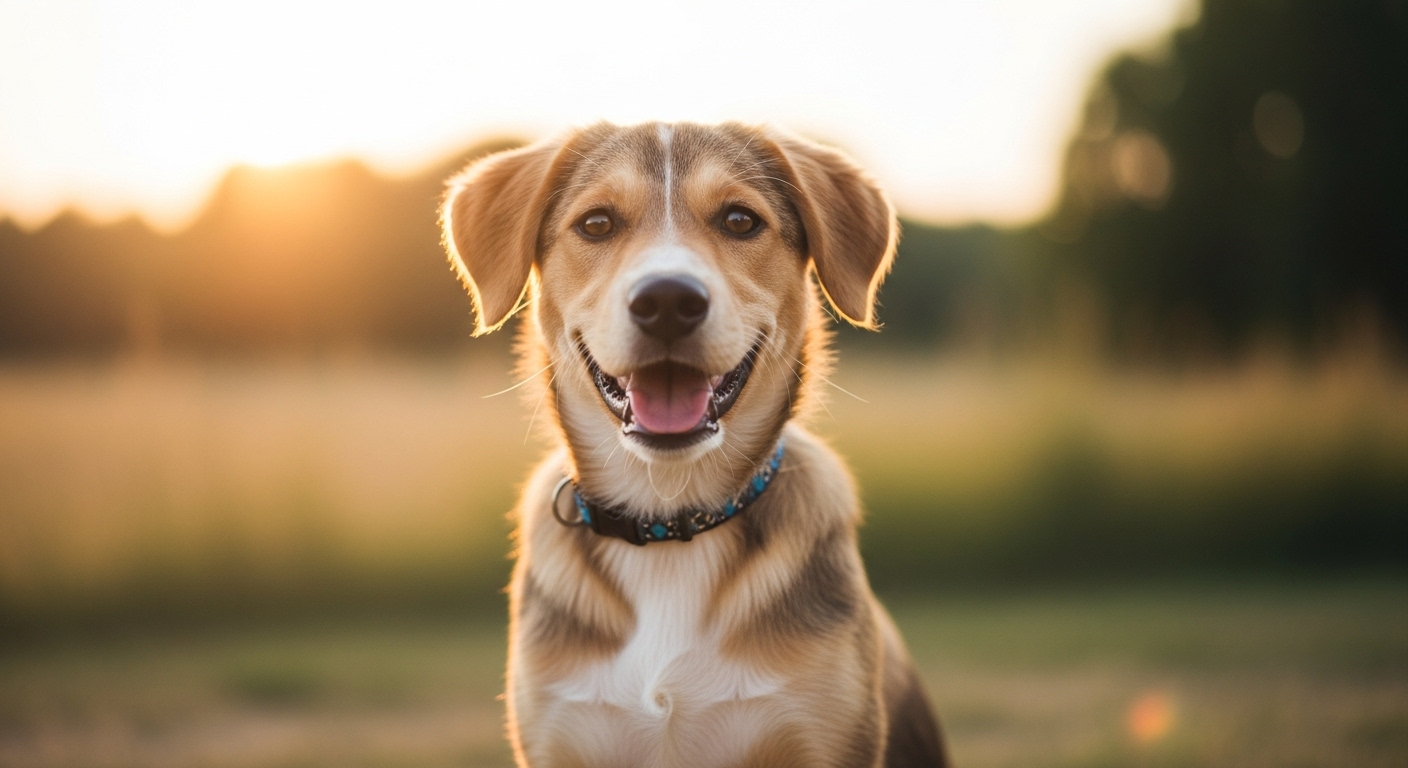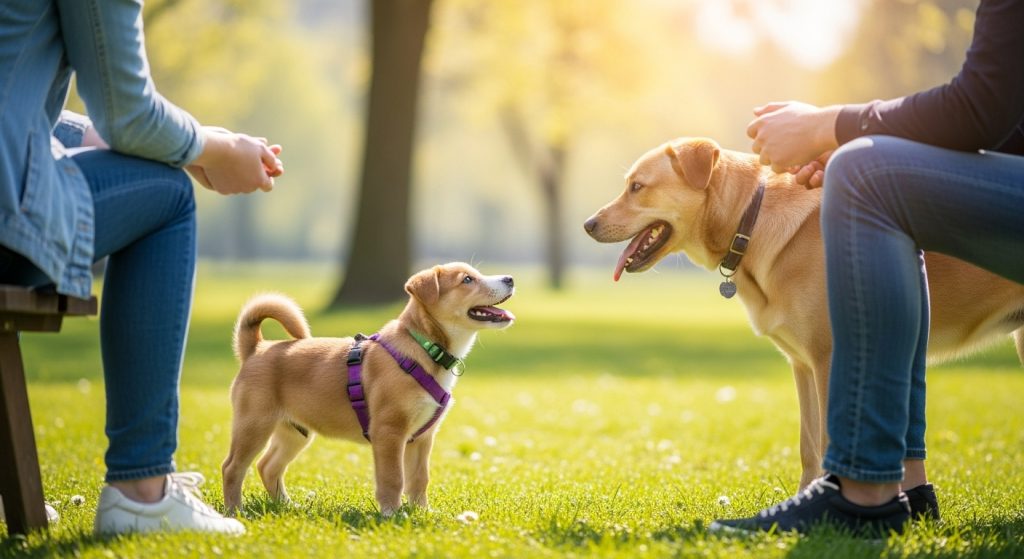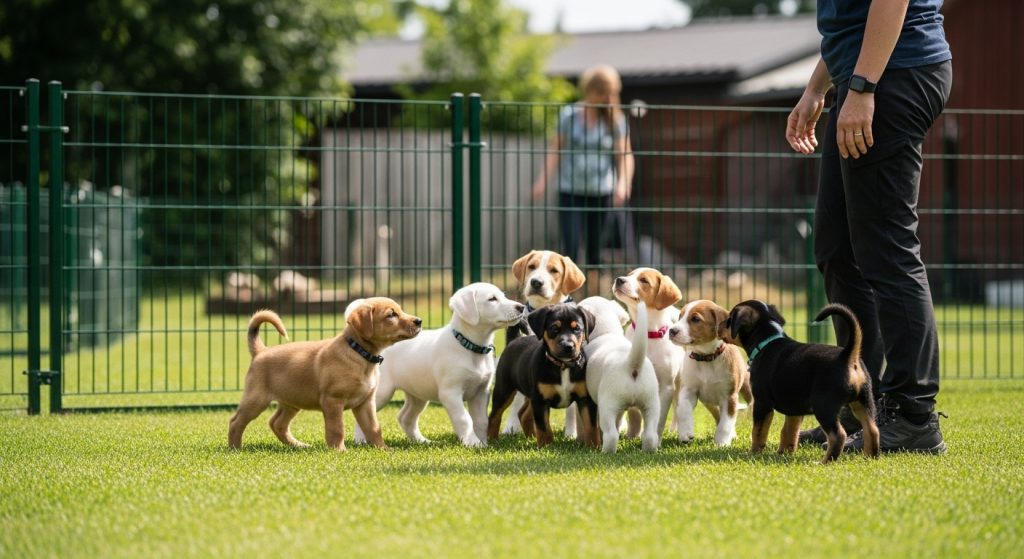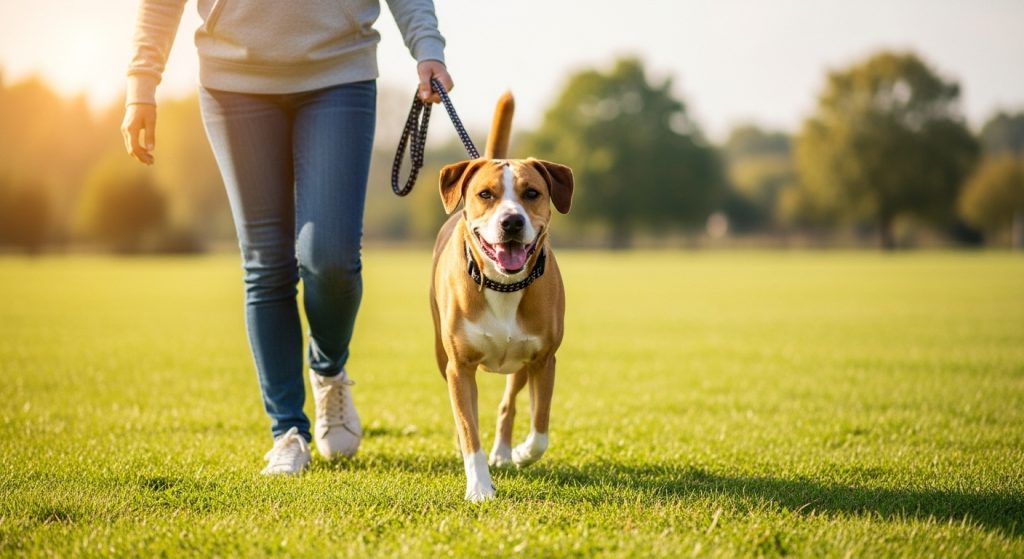The Importance of Puppy Socialization
Bringing home a new puppy is exciting, but the first few months of your pup’s life are critical for social development. Proper puppy socialization sets the foundation for a confident, calm, and friendly adult dog. Without it, your puppy may grow up fearful, anxious, or even aggressive toward unfamiliar people, animals, or environments.
What Is Puppy Socialization?
Puppy socialization is the process of gently exposing your young dog to new experiences — sights, sounds, smells, people, and animals — in a positive and controlled way. The goal is to help your puppy learn that the world is a safe place.
Veterinary behaviorists identify a key “socialization window” — typically between 3 and 14 weeks of age — when puppies are most open to new experiences. Positive exposure during this time can shape your dog’s temperament for life.
Why It Matters So Much
When puppies are not properly socialized, they may become fearful or defensive later in life. This can lead to:
-
Barking or growling at strangers
-
Fear of children or other dogs
-
Anxiety in public spaces
-
Difficulty adapting to new environments
On the other hand, a well-socialized puppy grows into a happy, well-adjusted companion who’s confident and calm in any situation — from meeting guests to visiting the vet.
Real-Life Benefits
Proper socialization doesn’t just make life easier — it saves lives. Dogs with stable temperaments are less likely to be surrendered to shelters or develop behavior problems. It also helps your dog become more responsive during training, making communication smoother and more enjoyable for both of you.
How to Socialize Your Puppy Step by Step
Socialization is not about overwhelming your puppy — it’s about creating positive associations with new experiences. Follow these simple but powerful strategies to make the process fun and safe.
Step 1: Start at Home
Before venturing outside, begin where your puppy feels most comfortable — your home. Let them:
-
Hear daily noises like the vacuum, TV, and doorbell.
-
Walk on different textures (carpet, wood, tile).
-
Meet household members wearing hats, sunglasses, or coats.
Keep each session short and positive. Use gentle praise and tasty treats to reward calm curiosity.
Step 2: Gradually Expand Their World
Once your puppy feels confident indoors, it’s time to explore beyond your front door. Start with calm environments like a quiet street, then move to more stimulating places such as parks or pet-friendly cafés.
Each outing should include exposure to:
-
Different people: Men, women, children, people with umbrellas or wheelchairs.
-
Other animals: Friendly dogs, cats, or farm animals (at a safe distance).
-
Various environments: Busy sidewalks, grass fields, sandy beaches.
Remember — quality over quantity. A few calm, positive experiences are better than overwhelming your pup with too much too soon.
Step 3: Pair Every New Experience with Rewards
The secret to effective puppy socialization is association. Each time your puppy encounters something new, pair it with something pleasant — a treat, praise, or gentle play. Over time, your puppy learns:
“New things = good things happen!”
This helps prevent fear-based reactions later in life.
Step 4: Use Controlled Playdates
Introduce your puppy to other vaccinated, well-behaved dogs in a safe area.
-
Match sizes and energy levels.
-
Supervise closely to prevent rough play.
-
Intervene calmly if one puppy looks overwhelmed.
Positive early experiences with other dogs teach your pup healthy social manners — how to play, share space, and read canine body language.
Maintaining Confidence and Positive Behavior
Socialization doesn’t end when your puppy grows older. It’s an ongoing journey throughout your dog’s life. To maintain confidence and friendliness, you need to continue exposing your pup to the world in safe and enjoyable ways.
Tip A: Keep Experiences Positive, Not Stressful
If your dog shows hesitation or fear, don’t force them. Back up a few steps and try again later. The goal is for your dog to feel safe, not scared.
A confident dog is built through trust, not pressure.
Reward calm behavior and never punish fear responses — this only increases anxiety.
Tip B: Encourage Calm Encounters
Teach your dog to greet people and dogs politely. Avoid letting them rush up to strangers or jump in excitement. Use commands like:
-
“Sit” before greeting
-
“Watch me” to regain focus
-
“Leave it” for distractions
This creates polite social habits and keeps interactions safe and enjoyable for everyone.
Tip C: Continue Learning and Training
Ongoing training reinforces confidence and communication. Sign up for:
-
Puppy kindergarten or obedience classes
-
Agility or scent training for fun challenges
-
Visits to new environments like dog-friendly trails or cafés
The more your dog experiences the world, the more balanced and adaptable they become.
Tip D: Mind Health and Wellness
Healthy dogs are happier and more sociable. Make sure your pup receives:
-
Proper vaccination and regular vet checkups
-
Nutritious meals and hydration
-
Plenty of rest and playtime
A balanced body supports a calm and stable mind — essential for maintaining lifelong social ease.
Tip E: Celebrate Every Milestone
Every step toward confidence — even small ones — deserves praise. Whether your puppy calmly greets a stranger or walks past a noisy truck, celebrate it!
Positive feedback motivates your dog and reinforces trust in you as a leader.
Raising a well-socialized puppy is one of the best gifts you can give your future dog — and yourself. Through gentle exposure, consistency, and positive reinforcement, your puppy will learn to navigate the world with confidence and curiosity.
Remember:
-
Start early, stay consistent.
-
Focus on positive experiences.
-
Maintain calm leadership and trust.
With patience and love, puppy socialization becomes a joyful journey toward lifelong friendship and harmony.




